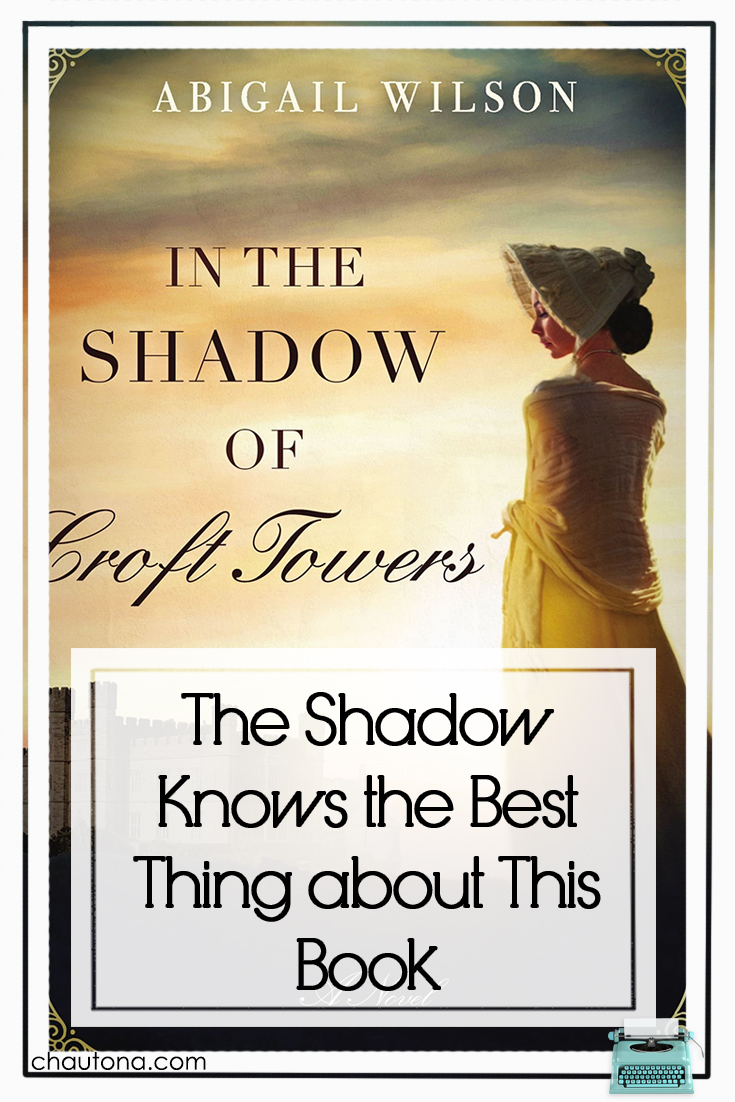“What evil lurks in the hearts of men…”
The first time I heard that ominous voice asking that question I was enthralled. Okay, I was also self-righteously ticked off that they dared to imply some “shadow” knew what God alone does. I was a self-righteous that way. Fine. I still am.
At least I recognize it now? Yeah. Let’s go with that.
But I loved the voice, the story, the acting, the screams! Even more, I loved the idea of a nighttime vigilante out to solve crimes because “the seeds of crime bear bitter fruit. Crime does not pay!” (or something like that).
Mom and I had debates on if “the Shadow knows” because he was a reformed criminal trying to pay for his former misdeeds. I was usually of the former. Mom said he was a bitter law enforcement officer who’d gone rogue. We never did hear if either of us was right.
A couple of months ago, I saw a book available for review—In the Shadow of Croft Towers—and the first thing I thought of was that old radio drama we used to listen to back in 1984 in the middle of nowhere.
I had to read it. And then, of course, I wondered. What do the shadows of Croft Towers know?

Note: links are probably affiliate links that provide me with a small commission at no extra expense to you. Additionally, I requested a review copy of this book and chose to review it.
The Shadow Knows the Best Thing about This Book
There are a lot of excellent things about In the Shadow of Croft Towers, but I’ll get to them in a minute. I want to throw out the things that bothered me and get them out of the way before I get to the good stuff—the really good stuff.
First, there were a few words that jumped out as out of place. I don’t know if it was a thing back then, but I suspect it was. Americans wear pants. The English wear trousers or breeches. While this was an ARC, I can’t imagine that’s one of the things that’ll be caught at this stage. Reading along and seeing him give her pants (or was it that his pants were dirty? Can’t remember)… well, it jarred me out of the story.
I have no idea if “exit wound” was a term during the Regency period, but I really don’t care. Because like many things we say or do today that make other things sound modern when they aren’t, it feels very modern. Too many crime shows talking about exit wounds—it makes any reference to it two hundred years earlier feel anachronous.
There were also a few inconsistencies—one stood out in particular.
At one point, Sybil reads over someone’s shoulder as the woman begins writing a letter. Later, she ruminates that she’d never seen that name before. Um, yeah. Ya did.
Also… amid excellent writing (and really, for first person it was excellent), we come to those romantical moments… and the declarations of love. Gag. Seriously, gag. They read like a third-rate dime novel. “Oh, my darling… my dear… my precious… my pet…” Wait. I think that was Seven Brides for Seven Brothers. Still, it felt like it.
Not my cuppa (my nod to the English and their love of tea).
Finally, there was the Christian element. Or, rather, lack of it. My biggest complaint, if you want to know.
In fact, the way some scenes begin and then cut off abruptly, I would have sworn this book was written for a mainstream market with more of a PG-13 rating and cleaned up for the Christian market instead. I just finished the book a few hours ago, and I can’t even remember if there was a prayer in the book.
Token prayers to “baptize”fiction are annoyances in themselves, but a lack of faith at all in a book by a Christian publisher… Yeah. I shouldn’t be surprised. I’ve noticed a lot more of that in Thomas Nelson’s recent offerings. Regardless if it’s there and I missed it or not, I got no spiritual lessons out of it aside from those I dug out myself. I just enjoy seeing characters benefit from those lessons.
That said, at least it wasn’t preachy! THAT is a blessing.
Speaking of the good stuff… nay the best thing the shadows of Croft Towers can tell us…
This is a fabulous mystery-slash-suspense novel with enough twists and turns and edge-of-your-seat moments to keep you going right until the end. I saw elements used in ways I haven’t before, and not too many anachronisms or attitudes that reflect modern sentiments and foisted on a mindset that didn’t hold them.
That’s a problem in historical fiction today, and the only one I really saw fit the scenario and the character who showed it. Thank you for that, Ms. Wilson.
Well written with a lovely balance of description and interwoven backstory—I seriously enjoyed this book. I didn’t love it, but I liked it enough that I’ll be looking for more from Abigail Wilson. I’m so glad I requested this review copy—despite my “criticisms.”
Considering Abigail Wilson was a finalist for a Daphne Du Maurier award, I suspect I’m going to find some wonderful books among her backlist. And I look forward to the next.


Thanks for the review. I enjoyed reading about the things that bothered you in the story, and also those that you liked about it. I’ve had this book on my radar, and I’m looking forward to reading it.
I really do look forward to the next. 🙂